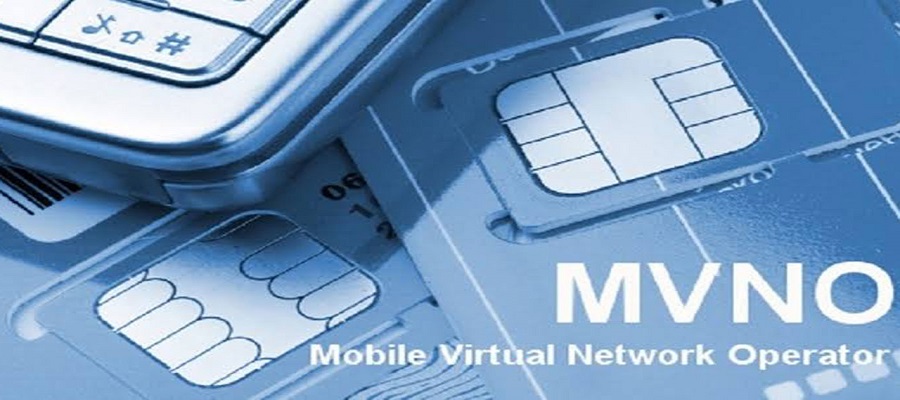Telecom
Mastercard’s Girls4Tech programme addresses tech skills shortage among Nigerian women

In celebration of International Women’s Day, Mastercard has launched the rollout of its first 2020 Girls4Tech programme in Nigeria.
A total of 60 girls between the ages of nine and 12, currently attending the Holy Child College in Lagos, were encouraged to consider careers in science and technology.
The hands-on, inquiry-based Science, Technology, Engineering and Mathematics (STEM) program incorporates Mastercard’s deep expertise in payments technology and innovation.
Mastercard employees serve as mentors and role models and guide participants through practical and fun exercises covering topics such as encryption, fraud detection, data analysis, digital convergence, cybersecurity and AI.
The program also emphasizes important skills such as collaboration, creativity and communication to enable young girls to apply their technical knowledge to solve real-world challenges.
Ifeoma Dozie, director, Marketing and Communications, Sub-Saharan Africa at Mastercard, said, “Through our Girls4Tech programme, we’re extending our commitment to Nigeria’s next generation of women leaders and developing a talented pipeline of STEM professionals to support the country’s future economy, by encouraging girls to embrace the subjects that will prepare them for the workforce of tomorrow.”
Inspiring young girls to build the skills they need in STEM is important, as it ensures that more women have a have a voice in the development of the products and services of the future.
According to an IPSOS survey, 89% of African women are the decision-makers or co-decision-makers for household purchases, yet UNESCO says the share of women working in research and development (R&D) is just 32% in Sub-Saharan Africa.
“It is critical to have women represented in the decision-making, engineering and innovation processes, so that we can design solutions that better meet their needs.
“By taking active steps such as the Girls4Tech programmes, we are helping to prepare young women for careers in science, technology, engineering and math, ultimately increasing their opportunities for prosperity, employability and a voice in the conversations that are driving the digital economy. Connecting people to possibilities is fundamental to what we do at Mastercard.
“It’s what Priceless is all about –unlocking the potential in every person across all parts of their lives. By creating a world with women in mind, and women involved, we can unlock limitless possibilities for us all,” Ifeoma said.
Ranked 128th out of 153 countries in the 2020 Global Gender Gap Report, women currently make up only 22% of Nigeria’s total number of engineering and technology university graduates.
The growing demand for STEM graduates in Nigeria’s workforce means increased opportunities for women in future.
Since its launch in April 2014 in the United States, Girls4Tech has reached more than 500,000 girls in 28 countries, including over 100 girls in Nigeria.
Mastercard has further committed to reach 1 million girls globally by 2025. Additional programmes will be rolled out to schools in Lagos later this year.
Telecom
Lebara Nigeria, MVNO Oils Machine for Q3 Launch with Personalized Number Reservations

Lebara Nigeria is building excitement for its upcoming Mobile Virtual Network Operator (MVNO) launch, giving customers a chance to secure a personalized piece of their mobile identity.

The company has opened a Number Reservation Portal, allowing users to reserve their preferred mobile numbers before the official service goes live in the third quarter of 2025.
This strategic move is all about giving customers a sense of ownership from day one. Using the carrier’s 0724 prefix, users can choose a number that’s meaningful to them, whether it’s a birthday, a lucky number, or an easy-to-remember pattern.
The reservation process is straightforward. Users must be at least 13 years old and provide a few basic details to get a one-time password via email.
Once verified, they’ll need to enter their National Identification Number (NIN), which the system uses to confirm personal information.
After this, a list of available numbers appears, and a final confirmation email completes the reservation.
Lebara, a London-based global MVNO, according to yozzo.com, is no stranger to the telecom world, with a strong presence as a mobile virtual network operator (MVNO) across Europe and other regions.
Its entry into Nigeria is a calculated move to carve out a space in the highly competitive market.
By allowing customers to pick their numbers early, Lebara hopes to build loyalty and highlight its customer-first philosophy.
The company plans to operate a lean, technology-driven model by leveraging existing network infrastructure, which will help keep costs low and make its pricing competitive.
At launch, Lebara will offer nationwide coverage, a dedicated 0724 number series, and both SIM and eSIM options.
Beyond traditional connectivity, Lebara is also partnering with local government and the Ministry of Arts, Culture, Tourism, and Creative Economy to launch public Wi-Fi hubs and promote digital inclusion for creators and underserved communities.
The core of its proposition is affordability, transparent billing, and a strong customer service model designed to challenge established players.
Lebara’s entry won’t be without its challenges.
It will face off against many other competitors in Nigeria’s emerging MVNO space.
This wave of new entrants comes after the Nigerian Communications Commission (NCC) issued 46 MVNO licenses, with many of the licensees expected to have already launched.
Despite this, the local media’s focus has largely been on only a couple of them, Vitel and now Lebara.
Telecom
Why Half of MVNOs in Nigeria May Collapse- Experts

Telecoms stakeholders have cautioned that many Mobile Virtual Network Operators (MVNOs) in Nigeria could struggle to survive unless they address infrastructure gaps, target niche markets, and adapt to local realities.

The warning came during the sixth edition of the Telecoms Sector Sustainability Forum, organised by Business Remarks in Lagos on Tuesday.
According to the stakeholders, securing a license from the Nigerian Communications Commission (NCC) is not enough to ensure survival in a market dominated by major Mobile Network Operators (MNOs) like MTN, Airtel, and Glo.
Chidi Ajuzie, director of USK Mobile, highlighted the stark reality facing MVNOs, noting that none of the over 40 licensed operators have fully launched services.
“Licenses are not cash cows. Too many people think that once you get a license, the money will start rolling in. The truth is, you must build infrastructure, study the market, and create services that meet consumer needs. Without that, many MVNOs will die out quickly,” Ajuzie said.
Ajuzie pointed out that smaller operators, particularly those in Tier 4 and Tier 5 categories, face significant financial hurdles in building their own infrastructure to support capacity.
However, he sees this as an opportunity for innovation, urging MVNOs to target niche markets such as youth, migrant workers, or fintech services, as seen in successful models in South Africa and India.
“Half of us may launch, but only those with clear strategies will survive,” he warned, predicting mergers and consolidations in the coming years.
Tony Emoekpere, president of the Association of Telecommunications Companies of Nigeria (ATCON), echoed Ajuzie’s concerns, stressing that market differentiation is critical for MVNO survival.
“The MNOs already provide enterprise services, internet, and fintech. MVNOs must find gaps and focus on those,” Emoekpere said.
He cited Kenya’s M-Pesa, which revolutionized payments by targeting rural and low-income users, as a model for local innovation.
Emoekpere suggested that MVNOs could capitalize on Nigeria’s underserved rural areas, where millions lack access to reliable telecom and financial services. “Something as simple as a low-data package for POS machines in rural areas could be a game-changer,” he added.
Olusola Teniola, director, IPNX, cautioned against adopting foreign business models without considering Nigeria’s unique environment. “In some villages, people still travel by canoe or horse for hours to access basic services. If your business model doesn’t account for that, it will fail,” Teniola said.
He urged MVNOs to focus on the bottom of the pyramid, where millions lack basic connectivity, rather than competing for urban smartphone users.
Teniola also warned that failure to strengthen indigenous companies could lead to more profits leaving Nigeria through foreign-owned operators, emphasizing the need for policies to protect data sovereignty and foster local innovation.
The stakeholders said while MVNOs have the potential to expand Nigeria’s telecom sector and increase consumer choice, their survival hinges on strategic planning, niche targeting, and a focus on rural connectivity.
Without urgent action to address infrastructure challenges and adapt to local needs, many MVNOs risk disappearing before they can establish a foothold in Nigeria’s competitive telecom landscape.
Telecom
NCC Claims Nigeria’s Telecom Tariffs among Cheapest despite 50 Percent Hike

Nigerian Communications Commission (NCC) has defended the recent upward review of telecom tariffs, insisting that Nigeria’s rates remain among the cheapest in the world due to strong industry competition.

Speaking at a media briefing in Abuja recently, Dr. Aminu Maida, executive vice chairman, NCC, said that despite a 50% hike in tariffs, call rates have only moved from ₦15 per minute in the early 2000s to about ₦18–₦19 per minute today.
“Even with the increase, not all operators adjusted their tariffs. Some are still undercutting others. That is competition at work,” Maida explained.
He assured that the commission will continue to strengthen regulations to encourage competitiveness and transparency.
According to him, NCC is adopting an information disclosure strategy to enable consumers to make informed choices.
Maida also cautioned Nigerians against relying on Truecaller for identity verification, stressing that it is not linked to Nigeria’s SIM registration database and often provides misleading results.
He noted that while all SIMs in use are registered, some individuals deliberately use proxies, including domestic staff, to register SIMs an act he described as a crime.
The NCC boss disclosed that in September, the commission will launch a coverage and tariff map to help subscribers compare network quality and pricing across operators.
He further revealed plans for spectrum trades and leases to optimise usage and improve service delivery, adding that most Nigerian phones already support 4G, which remains the “sweet spot” for mobile broadband.
Maida emphasised the need for fresh capital and stronger corporate governance within the sector to sustain growth, enhance service quality, and strengthen national security.

 E-Financial3 days ago
E-Financial3 days agoFBNQuest Merchant Bank Facilitates Landmark ₦5Bn Commercial Paper Programme for Accion Microfinance Bank

 E-Business3 days ago
E-Business3 days agoNDPC Begins Probe of Banks, Others for Data Breaches

 Telecom3 days ago
Telecom3 days agoDigital Realty Commits to Africa’s Digital Transformation @ Launch of LKK2 Data Center

 E-Financial3 days ago
E-Financial3 days agoUBA to Deepen Financial Inclusion, Boost Savings’ Culture with Super Savers’ Promo

 Telecom3 days ago
Telecom3 days agoIntel–U.S. Partnership Reshapes Semiconductor Landscape with Historic Equity Agreement

 E-Financial3 days ago
E-Financial3 days agoFidelity Bank Resumes Intl Transactions on Naira Debit Cards

 E-Financial3 days ago
E-Financial3 days agoNigeria Leads Africa in Stablecoin Adoption with $22Bn in Transactions

 Telecom3 days ago
Telecom3 days agoNITDA Alerts Nigerians to eSIM Security Flaw Deployed to Hijack Devices Worldwide



























